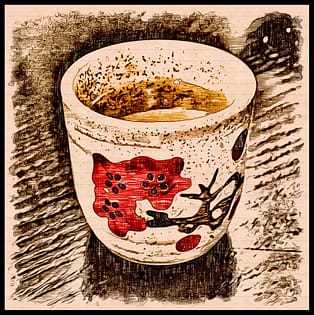
Outlook on Life
There are various answers to the question of whether the glass is half full or half empty. My favourite is ‘it depends what’s in it’. The core purpose of the question: are you more of an optimist or a pessimist? I have previously touched upon needing to persist with projects and maintain a positive outlook in another post. I wanted to use these ideas to show how to harness one’s own energy and find inspiration, no matter your view of the fullness of the glass.
I have just finished an extensive writing project and I am already looking for an idea for my next. My common sense says to stick with self-development style non-fiction as that is the genre I write on this blog but I am drawn towards fiction for the test of something new. For the moment I have this kind of restless energy, I feel that good things are on the horizon. It is a sense that there is something charged and exciting about what comes next, a blank slate, a fresh start.
At the same time, I know I still have a lot of legwork to do regarding the promotion of my recent work. The effort of careful self-promotion will be a delicate balancing act over the next few months. My current challenge, which I think is shared with many people, is despite considering myself mentally strong, I often struggle to find the inspiration to focus my energies.
Inspiration
Blinding light types of inspiration are exceedingly rare, often triggered by acute emotional experiences or periods of intense reflection. In my youth, I used to write poetry this way, but it was very occasional. The sporadic nature lent itself to the creation of one individual thing i.e. a short poem, but not a large and time-consuming project involving many ideas and concepts such as a novel or script.
I have not read Ernest Hemingways ‘On Writing‘ but I should do as I’ve come across occasional quotes of his and they resonate with me quite deeply. Some of his distilled wisdom essentially says that the art of good writing is communicating something that is understood at a fundamental level. This is done by observing detail. Whether one looks at the world through rose-tinted spectacles or sees it through a veneer of muck, it’s still observing the external reality we all share.
Generating Ideas
If the flash of light, momentary dazzling inspiration is hard to predict, how then can we build practices into our lives to improve our creativity?
The most obvious way to generate inspiration is to consume ideas and content that already exist. If you want to be an artist you might not need a degree in art history but you’ll want to be consuming visual imagery or experiencing your subject matter. If you want to be a writer then you need to read/research and of course, an aspiring musician will need an understanding and enjoyment of music.
This is all common sense so far. Yet one needs to be actively thinking when consuming content, it helps to be looking for a new angle or voice which hasn’t emerged yet. What can you add to certain discussions? What interests you uniquely that you could focus on?
A way to build up a portfolio of ideas is to carry a notebook with you when you go about your day-to-day life. Since most of us have a phone on us, and there are a plethora of notetaking apps, there’s almost no excuse not to. This is something that one needs motivation for and almost undoubtedly will have to persist with. At first, it will seem arduous and perhaps unnecessary.
However, over time, jotting down one’s thoughts and observations can provide a real insight into the workings of our psyche. Similarly, keeping a journal and tracking thoughts and feelings over days and/or weeks can provide inspiration from experience. After a while, you can reflect. What are your key observations? What are the themes of your thoughts? How can you translate these into your preferred medium?
Final Thoughts
It is important to remain upbeat about the creative process and to persist in practices that foster creativity. An open and enquiring mind is more likely to be stimulated than one that is dull and switched off. However, that is not to say a negative perspective cannot generate insight.
Much has been written elsewhere on habit-forming behaviours and so I won’t go into them here. Needless to say, if you can make a habit out of perceiving things in an original way, and can translate that into a coherent output, then you have cracked the inspiration conundrum.